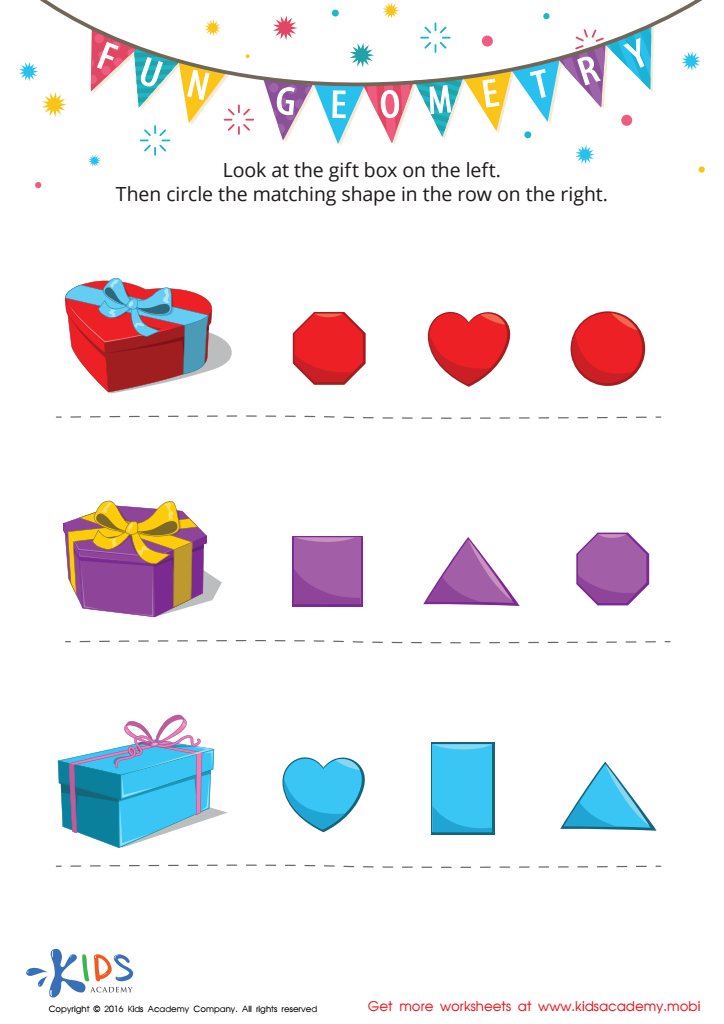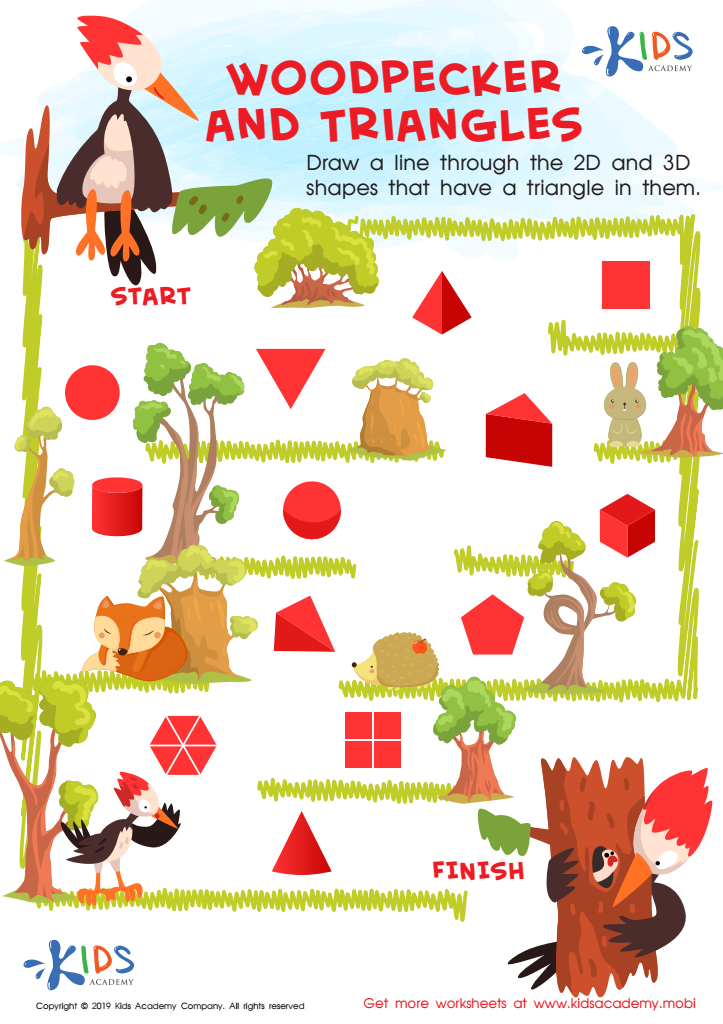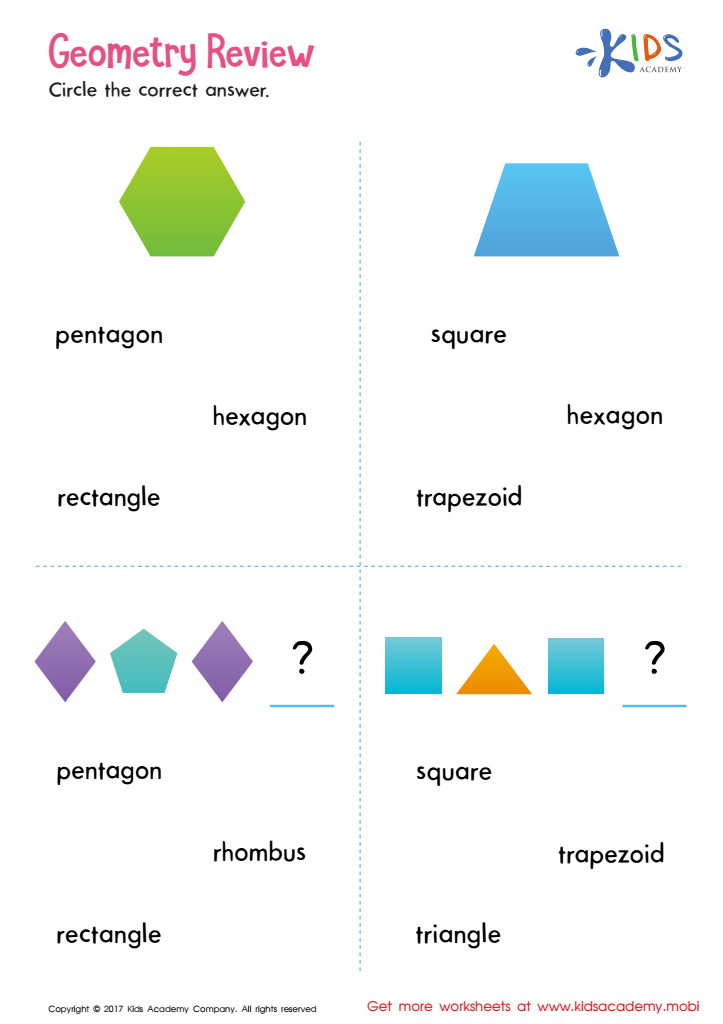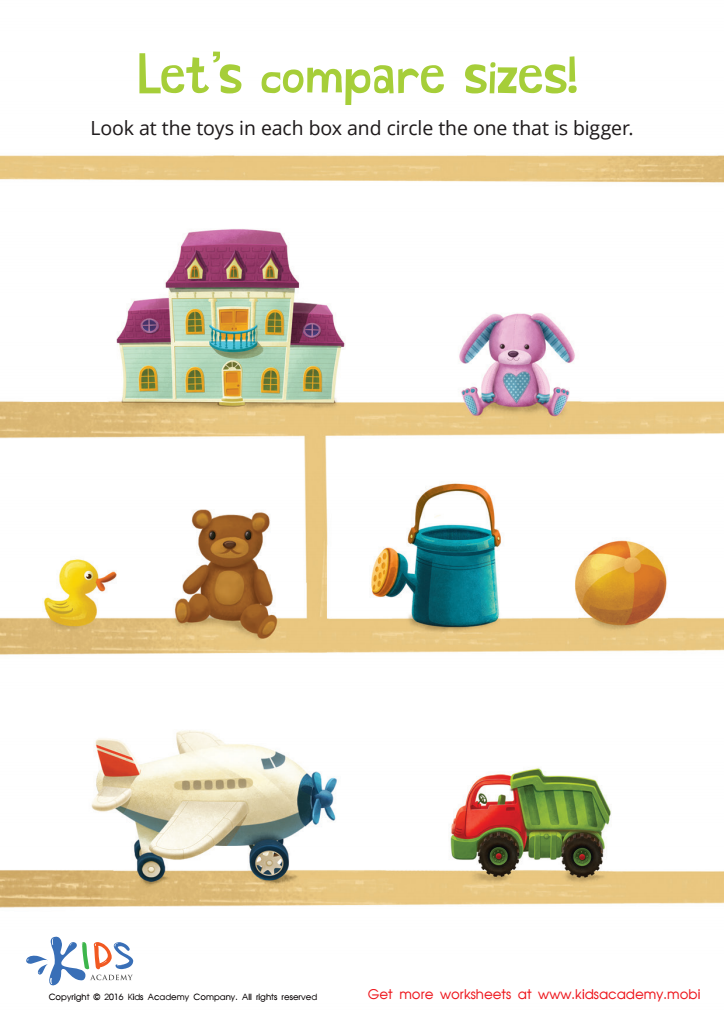Basic geometry understanding Extra Challenge Worksheets for Ages 4-8
4 filtered results
-
From - To
Enhance your child's spatial awareness and problem-solving skills with our Basic Geometry Understanding Extra Challenge Worksheets for Ages 4-8. These engaging and educational worksheets are designed to introduce young learners to essential geometry concepts through fun and interactive exercises. From identifying shapes to exploring symmetry and patterns, each activity promotes critical thinking and visual-spatial reasoning. Perfect for both classroom use and home practice, our worksheets challenge and motivate children, providing a solid foundation in geometry that will benefit them throughout their educational journey. Give your young learners the confidence and skills they need to excel in math!


Fun Geometry Worksheet


Woodpecker and Triangles Worksheet


Geometry Review Printable


Classifying by Size Sorting Worksheet
Understanding basic geometry is integral for young children's cognitive, spatial, and mathematical development, making the Extra Challenge for ages 4-8 a valuable addition to early education. Geometry helps children understand the physical world around them by teaching concepts such as shape, size, position, and dimension. These skills are foundational for more complex mathematical concepts and are widely applicable in daily activities, from understanding patterns and symmetry to navigating spaces.
Encouraging extra challenges in geometry nurtures critical thinking and problem-solving abilities in a fun, engaging way. Children who engage with geometry develop spatial awareness, improving their ability to visualize and manipulate objects. This awareness is crucial not just in math, but also in subjects like science, engineering, art, and even reading comprehension.
Moreover, early success with geometry can boost children’s confidence in their mathematical abilities, setting a positive tone for future learning. Challenges tailored to young children’s development stages ensure that learning remains enjoyable and appropriately stimulating, promoting sustained interest and curiosity.
By supporting extra challenges in basic geometry, parents and teachers contribute to a well-rounded, robust educational foundation. This foundation helps children transition more smoothly into advanced study areas, fostering lifelong learning skills and a love for mathematics.
 Assign to My Students
Assign to My Students



















